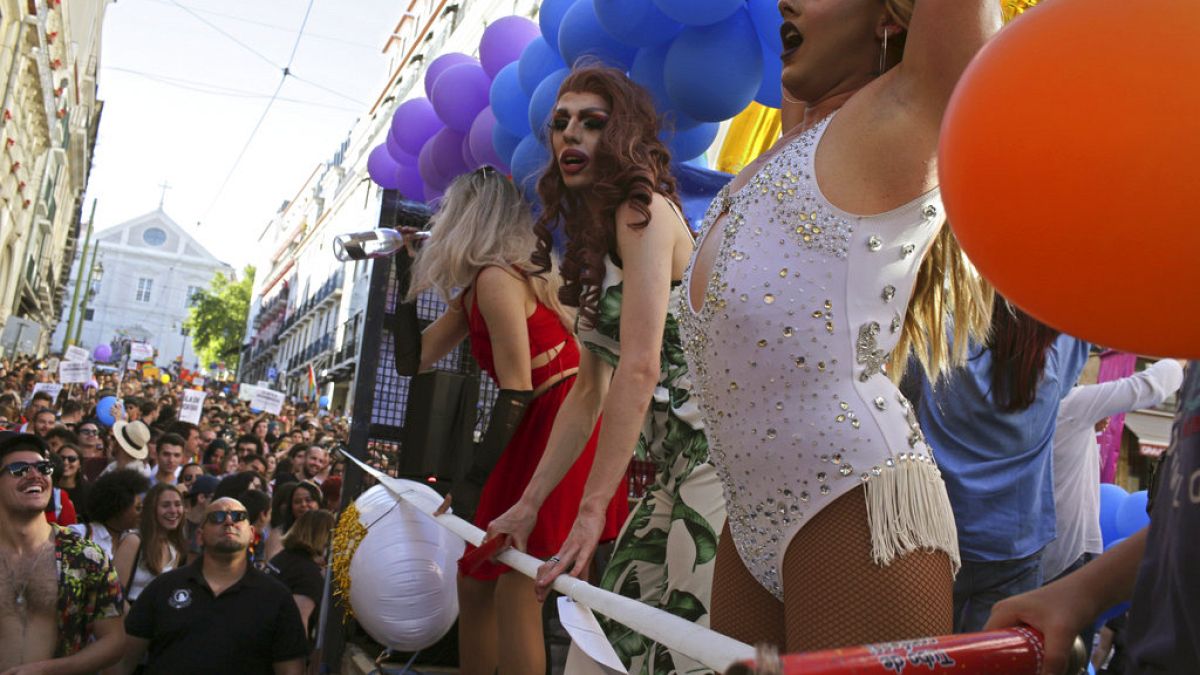Both Poland and Portugal marked the beginning of pride month with parades held on Saturday afternoon.
The month of June is celebrated as pride month across the world, with festivals, demonstrations, parades, and other events bringing light to LGBTQ+ issues.
Polish cities host Pride Marches one week after critical elections
In Poland, Pride marches were held in the cities of Gdańsk and Wrocław, just one week after the election of conservative-nationalist Karol Nawrocki, who was endorsed by the Law and Justice party.
This was the 17th Pride Parade in Wrocław, and the 10th to take place in Gdańsk. In Wrocław, demonstrators set of from Freedom Square at 14:00, while the “Tri-City Equality March” encompassing the coastal cities of Gdańsk, Gdynia, and Sopot took off at 16:00. Both marches aimed to showcase the cities as inclusive towards all of their residents.
Several political leaders confirmed their participation in the marches, including Minister of Family, Labor and Social Policy Agnieszka Dziemianowicz-Bąk, Minister of Equality Katarzyna Kotula, Mayor of Gdańsk Agnieszka Dulkiewicz and Mayor of Sopot Magdalena Czarzyńska-Jachim.
City councilor and president of the Tolerado Association for LGBTQ+ rights, Marta Magott said in an interview with the official website of Gdańsk that the annual march is a “reminder of freedom, solidarity, and equality”.
The event was significant in Poland, which still ranks as the second-worst country in the EU for LGBTQ+ people, after Romania, according to the advocacy group ILGA-Europe, which publishes an annual “Rainbow Map” ranking the countries based on political and social factors.
Poland had occupied the top spot in the rankings for six years, and made marginal progress since the election of the coalition government in 2023, according to the organization. Portugal, on the other hand, is in 11th place.
A Pride March will also take place on June 14 in Warsaw.
Gay Pride March in Lisbon warns of rise of the far-right
At the 26th LGBTQI+ Pride March in Lisbon on Saturday, thousands of people lined the avenues of the capital’s downtown to defend human rights, equality and non-discrimination.
The march left Praça do Marquês de Pombal at 16:30 with one of this year’s mottoes being “Resist and not just Exist”, according to a joint manifesto published by one of the organising movements on social media.
At a time when the far-right is closer to political power and institutions in Portugal and Europe, hate speech and discrimination against LGBTQ+ minorities are resurfacing in national society, after more than 50 years of achievements in Portugal for equality and non-discrimination rights.
“The political forces that deny our rights are gaining institutional space, marching is reaffirming that we don’t back down, that we exist, that we resist,” says the Associação ILGA Portugal – Intervenção Lésbica, Gay, Bissexual, Trans e Intersexo (ILGA) on its Facebook account.
“Hate speech is trying to become normalised,” adds ILGA, and “we cannot ignore the fact that freedom and democracy are under attack,” warns. The group recalled that during the 48 years of dictatorship, the fascist regime denied the existence of homosexuals and lesbians, who were persecuted. Portugal lived under a dictatorship for almost 48 years.
Founded in 1995, ILGA Portugal is the oldest association defending LGBTQ+ people and their families against discrimination. It is part of ILGA World and the Platform for Fundamental Rights of the European Union Agency. “We are marching for the right to live with dignity, for all the people who came before us, for those who are here and for those who are yet to come.”
“This is a right that has been won over the years in Portugal, and today it is under threat,” said Mariana Mortágua, coordinator of the Left Bloc party, participating in the parade. “Nowadays, it’s difficult to demonstrate for human rights without being threatened by extreme right-wing forces and without the government doing something about it”, Mortágua added in statements to Portuguese national television, RTP.
“We have to keep fighting for rights,” said Hélder Bértolo of the March’s organising committee, “it’s important to be here, to raise our voices,” he added regarding the threat of acquired rights being broken in the face of the rise of the radical right. Bértolo said these rights “have faded”, especially in countries like Hungary. “Germany, the Netherlands, Poland and other European countries are also moving in this direction”, the spokesperson told reporters.
The 2025 edition also saw the participation of the Commission for Citizenship and Gender Equality (CIG), which joined the 18 associations and groups with political intervention in defence of the LGBTQ+ community.
